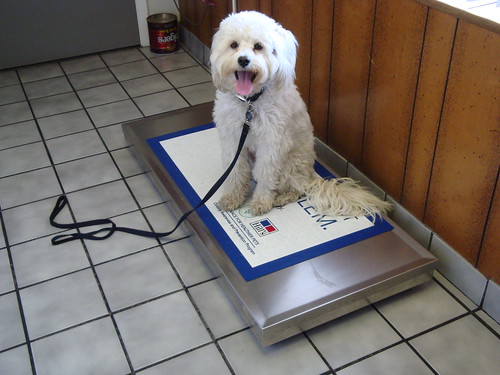 |
| Photo by Jim Degerstrom |
Do
· Discuss financial concerns up front. Be frank about your limits and request an estimate of costs. Ask your veterinarian to keep you updated about any necessary changes from the original plan.
· Ask questions if you don't understand a treatment plan, medication, diagnostic tests/results, medical measurements, etc. Ask for an explanation – your vet wants you to be an informed pet parent.
· Be honest and share your true concerns, especially about complying with treatments. If you aren’t able to give a medication as often as needed, or if you can’t afford a particular treatment, it is better to let the vet know that, than to keep it hidden. Alternatives are often available, but if your vet doesn’t know that you’re having a problem, it can’t be addressed.
· Keep clear records about your pet’s illness. Keep a log of symptoms, jot down anything unusual that happens, and take it with you when you have an appointment.
· Recognize that a veterinary practice may be a very busy place. Go into the appointment with a list of your concerns, so that you can be sure that they are all addressed in a timely manner. If you have a lot to cover, ask the receptionist if you can make an appointment during a less busy time, or if they have “extended exams” for complicated situations.
· Ask for a second opinion or referral to a specialist, if desired or appropriate.. Your veterinarian is a professional who should be happy to give you a referral and provide another veterinarian with your pet’s medical records.
Don’t:
· Wait to report changes in your pet’s appearance or behavior, or wait until the last minute to try to schedule an appointment.
· Stop or adjust medications because your pet is not responding the way you expect. Instead, call your veterinarian to discuss it.
· Disregard instructions such as follow-up visits, exercise restriction, or diet changes. If you have concerns, discuss them during the appointment or with a follow up call.
· Get angry if things aren’t going the way that you expected. Take a breath (or ten) and calmly express your worries and why you have them. Give your vet a chance to address your concerns.
Finally, if you appreciate your vet and their staff, tell them so. Thankfulness and a little kindness can go a very long way.
Written by Dr. Anthony J. Smith
Anthony J. Smith, DVM
Lap of Love Veterinary Hospice
San Francisco, CA
(510) 463-1664
SFBayArea@lapoflove.com | www.lapoflove.com
Dr. Anthony provides regular service to clients in the San Francisco East Bay Area (See Below for detailed cities listing). Service to other Bay Area Communities (Marin, San Francisco, San Mateo, Napa, and Santa Clara Counties) may be available on a limited basis, with additional charges for travel. Please call or e-mail for more information. For clients living outside of these areas, telephone consultations are also available.
Regular Service Area (no additional fee for travel):
- Alameda County: Alameda, Albany, Berkeley, Emeryville, Oakland, Piedmont
- Contra Costa: Alamo, Concord, Crockett, El Cerrito, El Sobrante, Hercules, Kensington, Lafayette, Martinez, Moraga, Orinda, Pacheco, Pinole, Pittsburg, Pleasant Hill, Richmond, Rodeo, San Pablo, Walnut Creek
- Solano County: Benicia, Fairfield, Vallejo
- Alameda County: Castro Valley, Dublin, Fremont, Hayward, Livermore, Newark, Pleasanton, San Leandro, San Ramon, Union City
- Contra Costa: Antioch, Brentwood, Clayton, Danville, Oakley
- San Francisco/Daly City
- Marin County: Corte Madera, Fairfax, Mill Valley, Larkspur/Greenbrae, Novato, San Anselmo, San Rafael


No comments:
Post a Comment
Note: Only a member of this blog may post a comment.